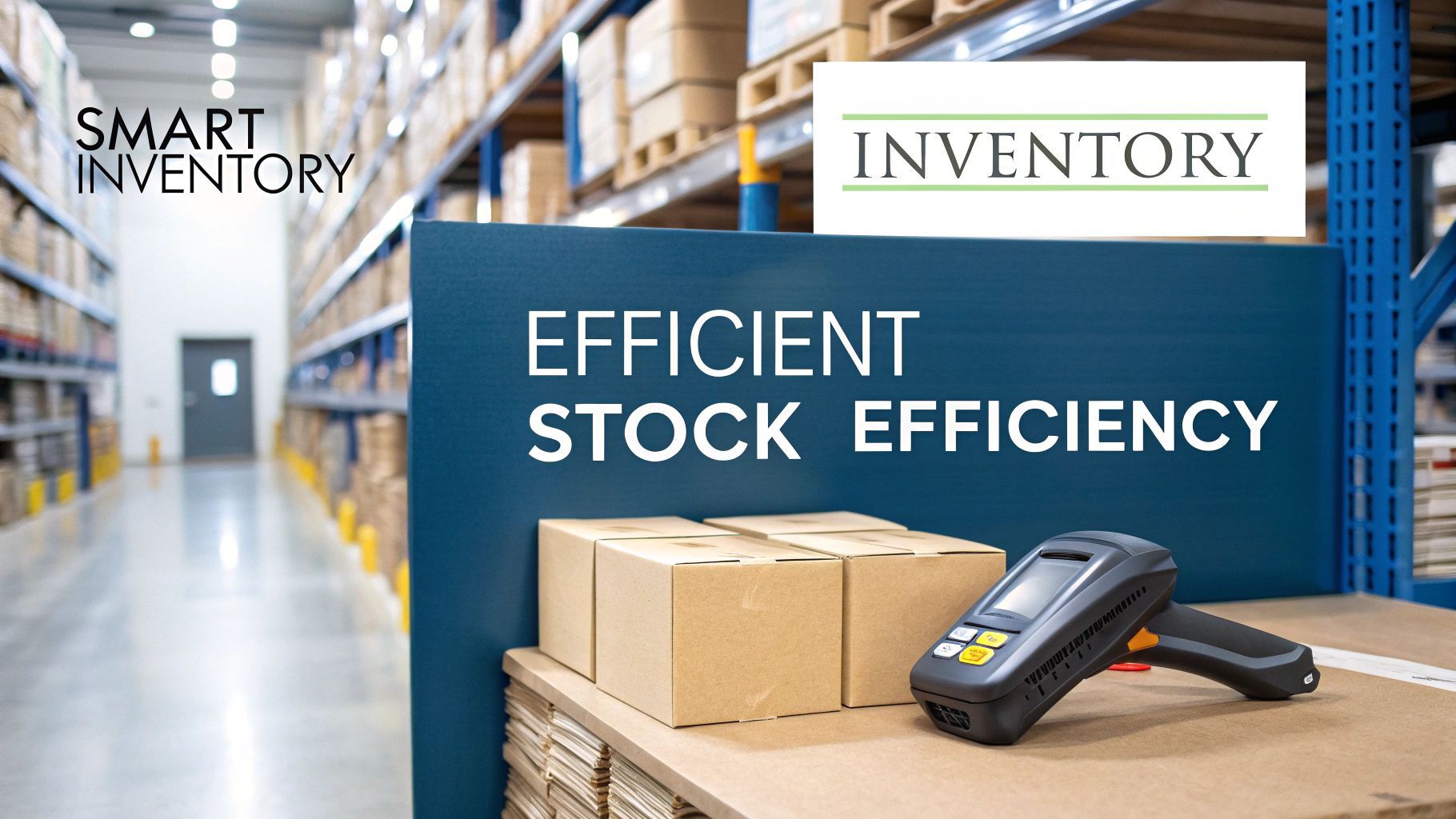Do I Need Critical Illness Cover? A UK Guide
Thinking about critical illness cover can feel a bit daunting, especially when you're trying to juggle household bills. The honest answer is it’s not for everyone but for many families it’s the financial backstop that makes all the difference during an incredibly tough time.
Let's be realistic: if you were diagnosed with a serious illness, the last thing you would want to worry about is money. Your focus should be squarely on getting better, not on how the mortgage is going to get paid.
That's precisely where this cover steps in. It’s designed to lift that financial weight. Unlike income protection that pays out a monthly sum, critical illness cover gives you a one-off, tax-free lump sum. This puts you in control, giving you the freedom to use the money wherever it’s needed most—whether that’s clearing your debts, covering day-to-day living costs or even paying for specialist medical treatment.
Assessing Your Need for Critical Illness Cover

Who Benefits Most From This Cover?
Certain life stages and responsibilities make this kind of protection particularly valuable. If any of the following sound like you, it’s probably a good idea to take a closer look at your options:
- Homeowners with a mortgage: A payout could completely clear your biggest debt, making sure your family home is secure, no matter what.
- Parents with dependent children: The funds can help maintain your kids' quality of life, covering everything from school trips to new shoes if you're unable to work.
- Individuals with limited savings: If you don't have a hefty emergency fund stashed away, this cover can be the difference between coping and financial crisis.
- The self-employed: With no sick pay to fall back on, a serious illness can hit your finances hard. This cover provides a much-needed safety net.
The core purpose of critical illness cover is to provide financial breathing space. It allows you to prioritise your health without the immediate pressure of financial obligations, giving you and your family invaluable peace of mind when it matters most.
To help you figure out where you stand, here’s a quick way to assess your own situation.
Quick Assessment: Your Need for Critical Illness Cover
This table breaks down the key personal circumstances that can help you decide if critical illness cover is a good fit for you.
| Factor to Consider | Why It Matters for You | Key Questions to Ask Yourself |
|---|---|---|
| Financial Dependants | If you have children, a partner or other relatives who rely on your income, your inability to work would have a major impact on them. | Who depends on me financially? How would they cope if my income suddenly stopped? |
| Major Debts | A mortgage is often the largest financial commitment. A serious illness could put your home at risk if you can't keep up with repayments. | Could we still pay the mortgage or rent if I was off work long-term? What about car loans or credit cards? |
| Savings & Emergency Fund | A healthy savings pot can act as a buffer but a long-term illness can quickly drain even substantial funds. | How much have I got saved? Realistically, how many months would it last if I had no income? |
| Employment Benefits | Some employers offer generous sick pay schemes but many don't. The self-employed often have no safety net at all. | What does my employer's sick pay policy actually cover and for how long? If I'm self-employed, what's my plan? |
Ultimately, the decision comes down to one simple question: if you were diagnosed with a life-altering illness and couldn't work for months or even years, could your household manage financially?
If the answer is no or even a hesitant "maybe" then critical illness cover is something you should seriously consider.
How Critical illness Cover Actually Works
Let's break down what critical illness cover is and just as importantly, what it isn't. Think of it as a financial emergency parachute; you hope you never have to pull the cord but knowing it’s there provides incredible peace of mind. It’s a very specific type of protection designed for one powerful purpose.
Crucially, this isn't private medical insurance that pays for your treatment. Nor is it income protection, which replaces your monthly salary. Instead, it provides a single, tax-free lump sum payment when you're diagnosed with a specific illness defined in your policy.
Understanding the Payout and Its Purpose
The real benefit of this cover is its flexibility. Once your claim is approved and the money lands in your account, it's yours to use however you see fit during what is undoubtedly a difficult time. There are absolutely no strings attached, giving you total control when you need it most.
For many people, this financial freedom is used to lift major sources of stress, allowing them to focus everything on getting better. For instance, the payout could be used for:
- Clearing a mortgage: Wiping out the biggest monthly expense for your household in one go.
- Covering regular bills: Making sure essentials like utilities, council tax and food are paid for while you're off work.
- Funding specialist care: Getting access to treatments or therapies that might not be available on the NHS.
- Adapting your home: Making necessary changes to your living space, like installing a ramp or a walk-in shower to help with new mobility needs.
What Conditions Are Typically Covered?
Every policy is different, which is why getting into the details is so important. That said, most providers cover a core set of serious conditions. These will usually include very specific definitions and severities of illnesses like:
- Invasive cancers
- Heart attacks
- Strokes
- Major organ failure
- Kidney failure
The golden rule is this: the illness must meet the exact definition written in your policy document for a claim to be paid. This is precisely why understanding the terms before you sign up is so critical for your future peace of mind.
The list of conditions can be quite long, sometimes covering dozens of different illnesses. To get a really thorough understanding of the nuts and bolts, you can check out this complete guide to critical illness insurance. At its heart, though, the cover is designed to shield you from the financial shock that comes with a life-changing diagnosis.
The Reality of Critical Illness Payouts in the UK
It’s a question that’s probably on your mind: “If the worst happens, will the insurer actually pay out?” It’s a completely fair question. After all, you’re paying for a promise, a financial safety net for one of the toughest times in your life. You need to know it will be there.
The good news? The horror stories you might hear are the exception, not the rule. The UK insurance industry has a strong track record of paying genuine claims and the numbers back this up.
In 2022 alone, UK insurers paid out an incredible £1.22 billion in critical illness claims. The average payout was £66,296 – a sum that can make a monumental difference to a family navigating a health crisis. Most importantly, 91.3% of all new critical illness claims were paid . This isn’t a coin toss; it’s a reliable system designed to work when you need it.
So, Why Are Some Claims Declined?
While over nine out of ten claims get paid, what about the small percentage that don't? Understanding why is the key to making sure your policy works as intended. In almost every case, it boils down to two avoidable issues.
The first and most common reason is non-disclosure . This is just a formal way of saying someone wasn’t completely honest on their application form. Maybe they forgot to mention a previous health problem, downplayed how much they drink or didn’t admit they smoke.
It might feel like a white lie at the time but to an insurer it’s a breach of the agreement. It’s also a form of insurance fraud, which has a ripple effect. Investigating misleading applications costs money and those costs are passed on to all of us through higher premiums. Being upfront isn't just a rule; it's what keeps cover fair and affordable for everyone. You can find out more in our guide on why an insurance company might refuse to pay a claim.
The Importance of Policy Definitions
The second big reason a claim might be declined is that the diagnosis doesn’t quite match the specific definition in the policy. This is where the small print really matters.
An insurer's definition of a "heart attack," for instance, won't just be what a doctor tells you. It will be based on very specific medical evidence, like certain troponin levels or particular changes on an ECG. A medically confirmed heart attack that doesn't meet these precise markers wouldn't trigger a payout under the policy's terms.
This is exactly why you have to read and understand your policy documents. It’s not just a formality; it’s the rulebook for your cover. Taking an hour to review the list of conditions and how they are defined gives you power. It means there are no surprises and you have a clear, realistic expectation of what your cover will do for you if you ever need it.
Understanding the Real Cost of Your Cover
The question, "Do I need critical illness cover?" almost always leads to a much more practical one: "How much will it actually cost me?"
There’s no single, off-the-shelf price. Instead, insurers calculate your premium based on a profile of you and your life. Think of it as a personalised risk assessment – several key factors are weighed up to determine the final monthly figure.
Your age and current health are, without a doubt, the biggest drivers. It's a simple fact that the younger and healthier you are when you take out a policy, the cheaper your premiums will be. Lifestyle choices matter, too. Being a smoker, for instance, can seriously bump up the price you'll pay. The amount of cover you want and how long you want it for also directly shape the final cost.
What Shapes Your Critical Illness Premium?
Let's break down the main elements that insurers look at. Every piece of information helps them build a complete picture of the risk involved, which in turn sets the price for your cover.
| Influencing Factor | How It Affects Your Premium | Real-World Example |
|---|---|---|
| Your Age | Premiums rise as you get older, simply because the statistical risk of developing a serious illness increases with age. | A 30-year-old might pay £15 a month , while a 50-year-old seeking the same cover could be quoted £60 or more . |
| Health & Medical History | Insurers will ask about your health and your family's medical history to spot any potential hereditary risks. | A history of heart disease in your immediate family may lead to a slightly higher premium. |
| Lifestyle Habits | This mainly covers your smoking status but can sometimes include alcohol consumption. | A smoker’s premium can easily be 50% to 100% higher than a non-smoker's for the same level of cover. |
| Your Occupation | A job with higher physical risk, like working on a construction site, can result in higher premiums than an office-based role. | A scaffolder is likely to pay more than an accountant due to the increased risk of an accident. |
| Level of Cover | The higher the lump sum payout you choose, the more you'll pay each month. It's a direct trade-off. | A £100,000 policy will cost more per month than a £50,000 policy for the same person. |
Each of these factors contributes to your final quote. Being transparent about them from the start ensures you get an accurate price and crucially, a policy that will pay out when you need it.
The infographic below really brings to life how just a few of these factors can stack up and influence the cost.

As you can see, something like smoking can nearly double the perceived risk, a fact that gets passed straight into your monthly premium.
Guaranteed vs. Reviewable Premiums
Another fork in the road you'll face is choosing between guaranteed and reviewable premiums. Getting this right is vital for your long-term financial planning.
Guaranteed premiums are fixed for the entire life of the policy. Yes, they might start off a little higher but you get absolute peace of mind knowing your payments will never unexpectedly jump up.
Reviewable premiums , on the other hand, start cheaper but are reassessed by the insurer at regular intervals, usually every five years. They can increase based on your age or even wider trends in claims data, meaning they could become much more expensive down the line.
While the lower initial cost of reviewable premiums is tempting, guaranteed premiums offer budget certainty for the long haul. A reviewable policy might save you money now but it carries the risk of future price hikes you may no longer be able to afford.
Ultimately, being completely honest on your application is the best way to get a policy that's priced right and more importantly, is valid. This transparency is the bedrock of the insurance system, helping to manage costs for everyone. To find out more, read our guide on how technology helps reduce insurance claims costs.
Why Financial Protection Is a Growing Priority
Let's be honest, the question of whether you need critical illness cover is becoming harder to ignore. We're seeing a rising number of major illnesses like cancer and heart conditions and the unfortunate reality is that many UK households find themselves financially exposed after a diagnosis.
What the state provides often just isn't enough to keep things afloat.

For most families, Statutory Sick Pay barely scratches the surface of essential monthly outgoings like the mortgage, utility bills and food. This creates a massive income gap right when financial stress is the last thing anyone needs. The pressure to make ends meet while navigating treatment and recovery can be immense.
This gap is exactly why critical illness cover is shifting from a niche product to a core part of financial planning. It’s no longer just for the wealthy; it’s for everyday families looking for a solid way to protect their financial stability if the unexpected happens.
Proactive Planning, Not Fearful Expectation
Thinking about serious illness is uncomfortable, of course. But taking out this kind of cover isn't about expecting the worst. It’s a responsible and proactive step to safeguard your family’s future. Think of it as building a financial firewall that protects your home, your lifestyle and your loved ones if your health takes a sudden turn.
This growing awareness is being felt right across the UK. With around four in ten people at risk of a critical illness by the time they're 65, the need for a financial backup plan becomes crystal clear. The market itself reflects this, with forecasts showing a compound annual growth rate of about 7.24% between 2025 and 2035 as more people recognise its value. You can dig deeper into the numbers in this UK critical illness insurance market report.
Taking out cover is an act of financial responsibility. It ensures that a health crisis does not automatically become a financial crisis, giving you and your family the breathing space to focus entirely on recovery without the added burden of money worries.
Ultimately, the decision to get critical illness cover comes down to control. It empowers you to take charge of your financial wellbeing, making sure that even if you face one of life’s toughest challenges, you have a plan in place to handle the fallout—protecting everything you've worked so hard to build.
How Insurance Fraud Impacts Every Policyholder
When you’re weighing up whether you need critical illness cover, it’s natural to think purely about your own situation. But the truth is, the entire insurance system is built on the honesty of every single person who applies for cover or makes a claim.
Fraudulent claims and deliberately hiding important information aren't victimless acts. They create a ripple effect that, sooner or later, touches every single policyholder.
Imagine the insurance system as a huge, shared pot of money. When someone dishonestly dips into that pot by faking a claim or not mentioning a pre-existing condition, they aren’t just cheating a faceless corporation. They're taking money from all the other honest people who have been paying their fair share.
This forces insurers to spend a huge amount of time and resources investigating suspicious cases. Those extra costs, plus the money paid out on fraudulent claims, don't just disappear. They get absorbed by the industry and are eventually passed on to everyone in the form of higher premiums.
The Collective Cost of Dishonesty
Ultimately, the small minority trying to cheat the system makes cover more expensive for the honest majority. This is why being completely transparent on your application isn't just a contractual thing – it's a shared responsibility. We dive deeper into this issue in our article on what insurance fraud really costs the industry.
By being truthful about your health and lifestyle, you’re doing your part to keep the system fair and affordable. It helps ensure genuine claims get paid quickly and keeps premiums as low as possible for everyone relying on this vital protection.
Honesty during your application is the bedrock of a fair insurance system. It ensures that your policy is valid and helps maintain affordable premiums for all honest customers who may one day need to rely on their cover.
Thankfully, the system is robust and designed to protect genuine claimants. The latest claims data shows that fewer than 9% of critical illness claims were declined in 2023. The main reasons were not meeting the specific definition in the policy ( 5.8% ) and non-disclosure ( 2.4% ), which just goes to show how crucial it is to be upfront from day one. You can discover more insights into 2023 claims data here.
Common Questions About Critical Illness Cover
Even after you’ve got a handle on the basics of critical illness cover, it’s completely normal to have a few questions lingering. This is a big financial decision, after all and getting the finer points straight is crucial before you commit.
Here are some straightforward answers to the questions we hear most often.
Is Critical Illness Cover the Same as Income Protection?
No, they’re different beasts but they work brilliantly together. Critical illness cover pays out a single, tax-free lump sum if you’re diagnosed with a specific, serious condition listed in your policy. You can use that money for absolutely anything – clearing the mortgage, adapting your home or just taking the financial pressure off.
Income protection, on the other hand, provides a regular monthly income if you can't work because of any illness or injury. It keeps paying out until you’re back on your feet or the policy term ends. Many people choose to have both to create a really solid financial safety net.
What Happens if I Never Make a Claim?
Think of it like any other protection policy – it's there for the 'what ifs'. If you reach the end of your policy’s term without ever needing to claim, the cover simply expires. You don't get any of the premiums back.
It's a bit like your car insurance. You pay for it every year hoping you’ll never need to use it. The premiums you pay buy you peace of mind, knowing that if the worst happens, you and your family are financially protected.
Can I Get Cover with a Pre-existing Condition?
It’s often possible, yes but it really depends on the specific condition, how severe it is and your recent medical history. The golden rule is to be completely honest and declare everything when you apply.
From there, the insurer will look at your application and could come back with a few different outcomes:
- Offer you standard cover at the standard price.
- Offer you cover but with an exclusion for that particular condition.
- Offer you cover but charge a higher premium to reflect the increased risk.
- In some cases, they might have to decline your application.
Honesty is absolutely non-negotiable here. Failing to mention a condition could be seen as insurance fraud, which would almost certainly void your policy and any future claim you might make.
At Proova , we're focused on making the whole insurance process more transparent and secure for everyone. Our platform helps ensure that when a claim is made, everything is clear, documented and straightforward—preventing the delays and disputes that can come from uncertainty. Find out how Proova is building a more trustworthy insurance ecosystem for honest policyholders and insurers alike.












